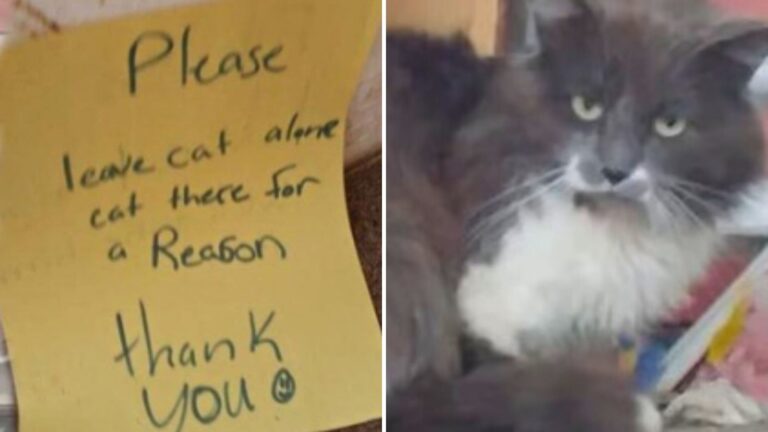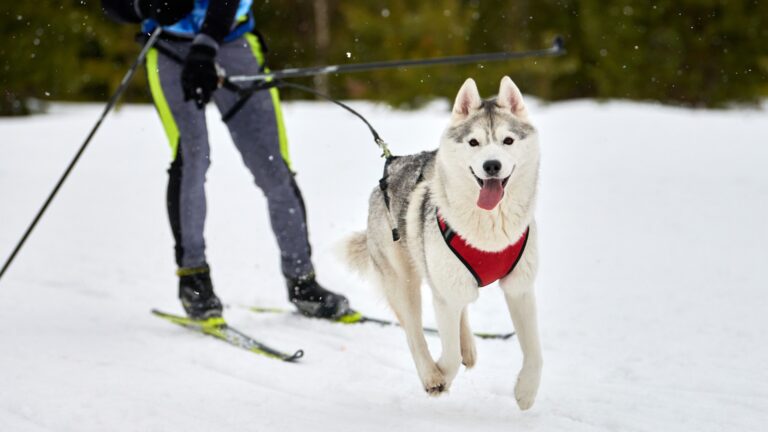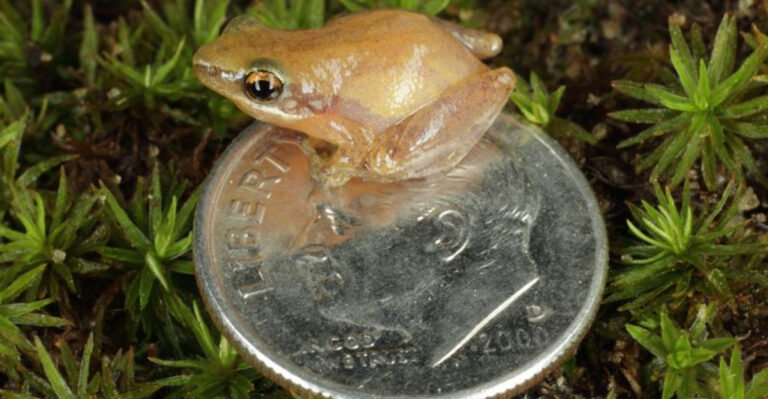15 Words Birds Know (And 5 They Don’t)
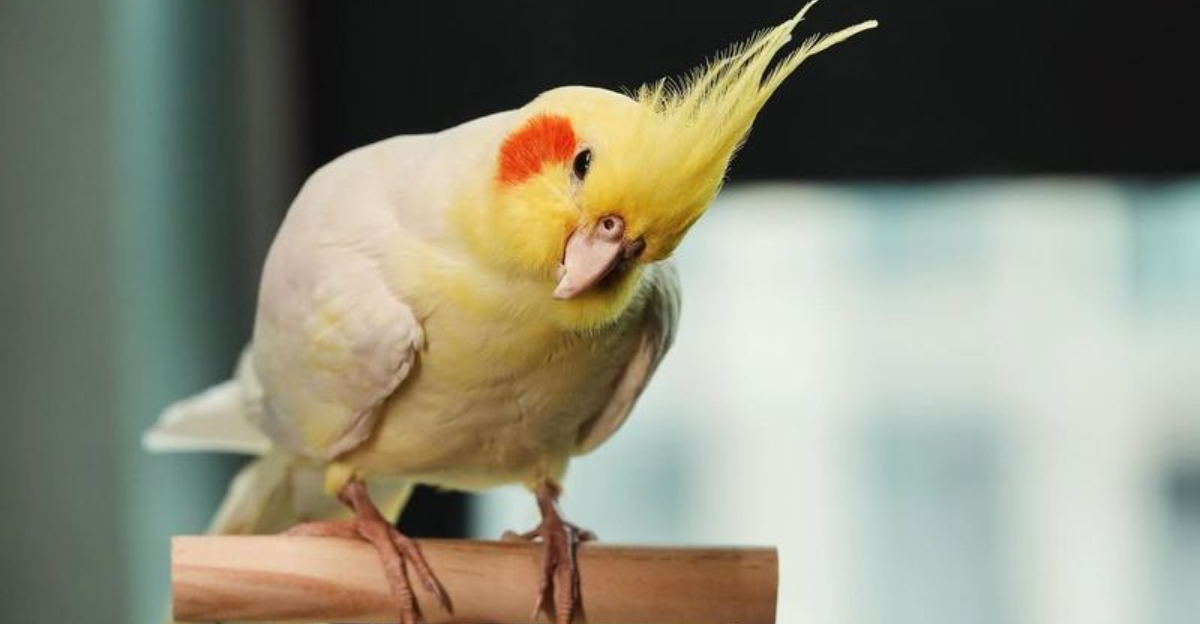
Ever wondered if birds have a knack for words? These feathered creatures can surprise you with their vocal abilities, picking up human words with impressive accuracy.
But don’t be fooled; not every word is within their grasp.
1. Hello
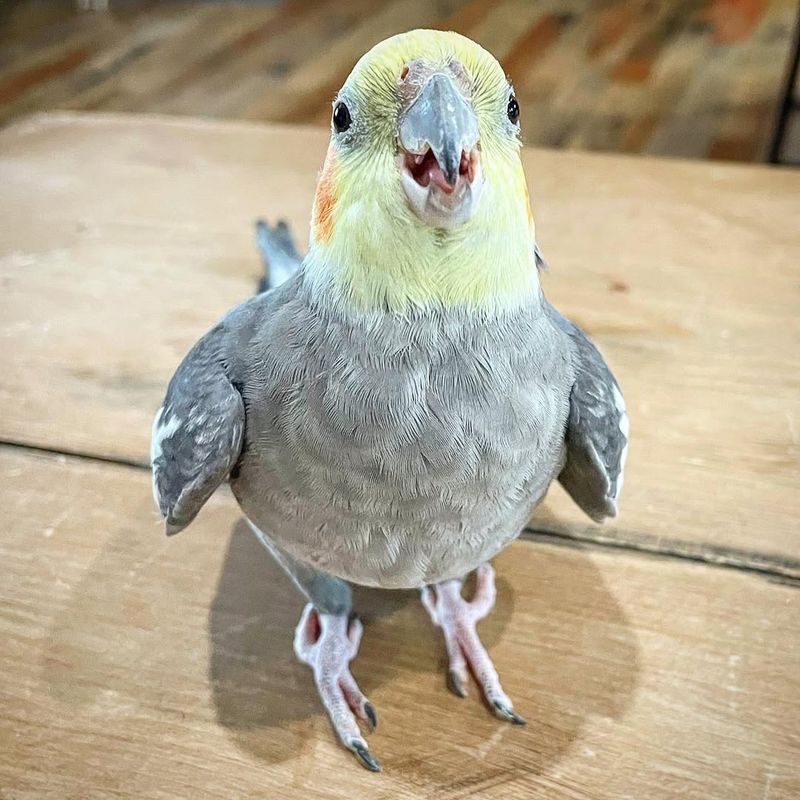
Imagine walking into a room and being greeted with a cheerful ‘Hello’. That’s the charm of many parrots, like the African Grey, who love to mimic this friendly greeting. It’s their way of breaking the ice, and they do it with flair.
Why ‘Hello’? Perhaps it’s the welcoming tone or its simplicity. This word tops the list of what bird owners often teach first, and birds seem to pick it up with ease. Who knew a simple word could open the door to so many conversations in the avian world?
2. Goodbye
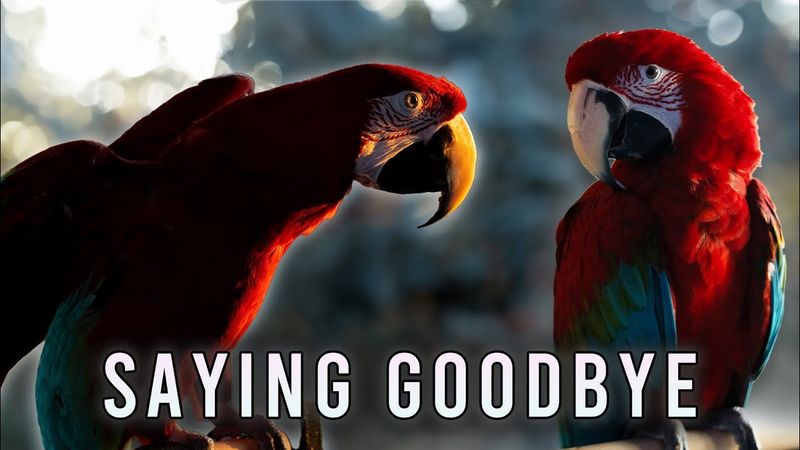
While ‘Hello’ starts the chat, ‘Goodbye’ wraps it up nicely. Birds, especially those in households, learn this word to signal departure. It’s like their way of acknowledging the end of interaction.
Ever noticed a parrot saying ‘Goodbye’ just as you’re leaving for work? It’s those little moments that make their vocab more endearing. Birds understand the routine and use ‘Goodbye’ to express it, making it a staple in their mini-dictionary.
3. Peekaboo

‘Peekaboo’ is not just for babies; it’s a game birds enjoy too. This word often comes with the playful act of hiding and appearing, something that parrots like to mimic.
Imagine a bird popping its head from behind a curtain and chirping ‘Peekaboo’! It’s a delightful surprise, showcasing their playful side. This word resonates with birds because it’s associated with fun and interaction, making it a favorite among our feathered friends.
4. What’s Up?
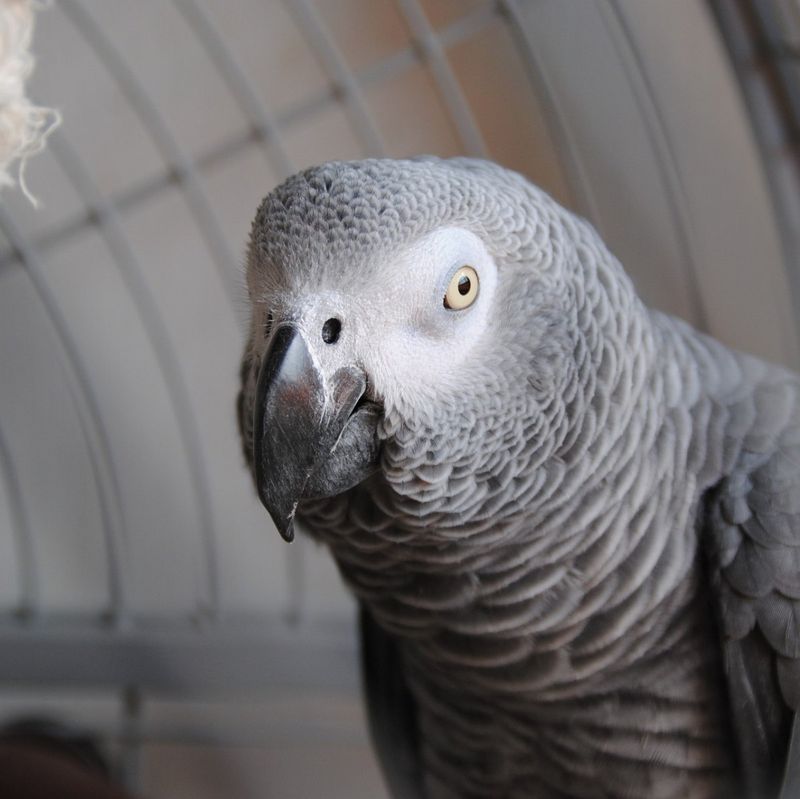
Ever had a parrot ask you ‘What’s up?’ It’s like having a buddy checking in on you. Birds often mimic this casual phrase, infusing it with their quirky personality.
It’s fascinating to hear this question from a beaked friend, almost as if they’re genuinely interested in your day. The phrase is light-hearted and informal, matching the playful nature of these intelligent creatures, making it a common phrase in their learned vocabulary.
5. I Love You

When a bird says ‘I love you’, hearts melt instantly. Birds, known for forming strong bonds, often learn this phrase from their human companions.
This expression of affection highlights their social nature and their ability to form close emotional ties with humans. It’s not just mimicry; it’s a reflection of the relationship shared, making ‘I love you’ one of the most cherished phrases they can learn.
6. Pretty Bird
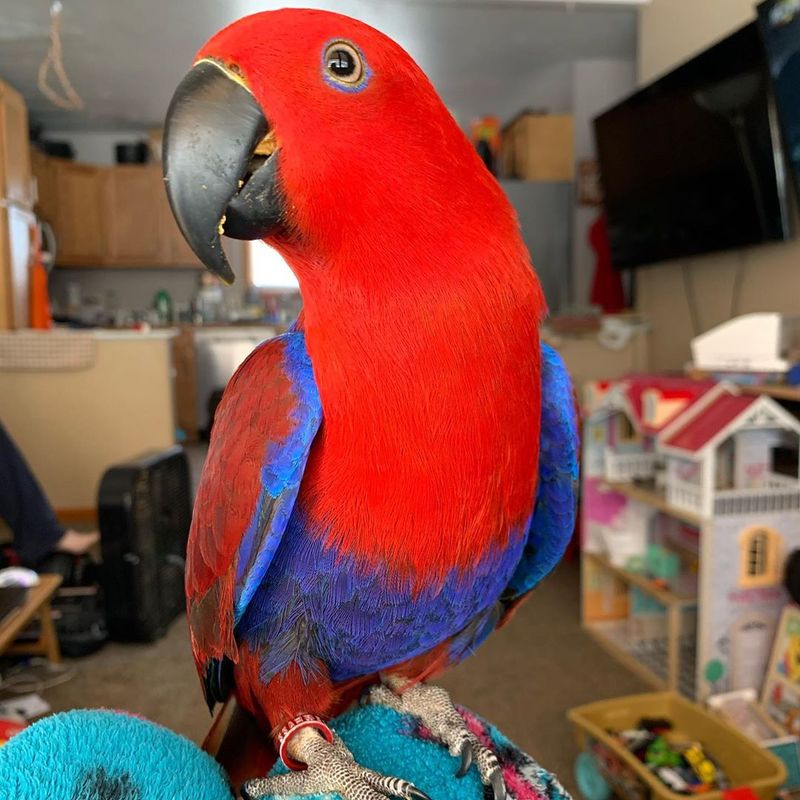
Birds, as if they aren’t beautiful enough, often learn to say ‘Pretty bird’. This phrase is usually taught by doting owners who adore their pet’s vibrant feathers.
Upon hearing ‘Pretty bird’, parrots seem to understand the compliment, puffing up with pride. It’s like they’re acknowledging their own beauty. This simple, two-word phrase adds a dash of confidence to their personality, making it a fun word to hear from our feathered friends.
7. Step Up
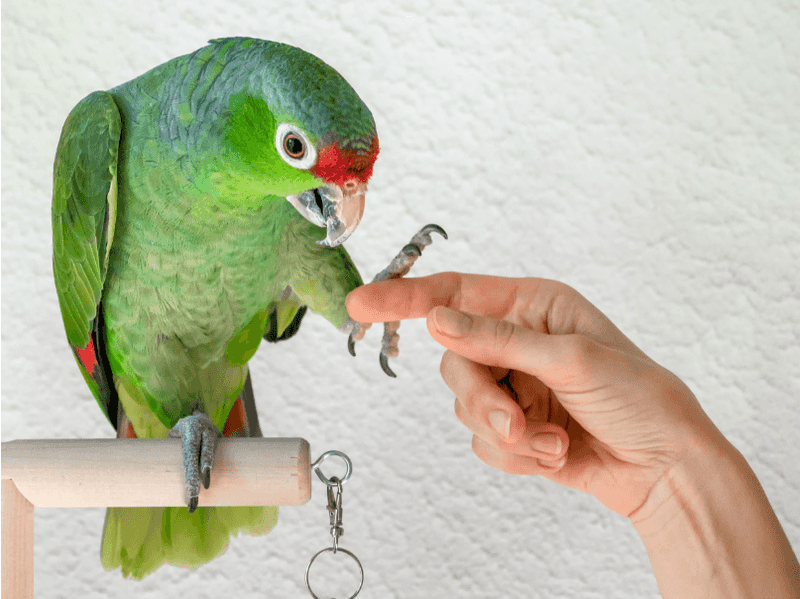
‘Step up’ isn’t just a command; it’s an invitation to bond. Birds learn this phrase as part of their training, allowing them to interact with humans more closely.
The phrase is not only practical but also a sign of trust. When a bird steps up, it’s their way of accepting you as part of their flock. This command, said with warmth and encouragement, becomes a bridge between human and avian worlds.
8. Good Bird
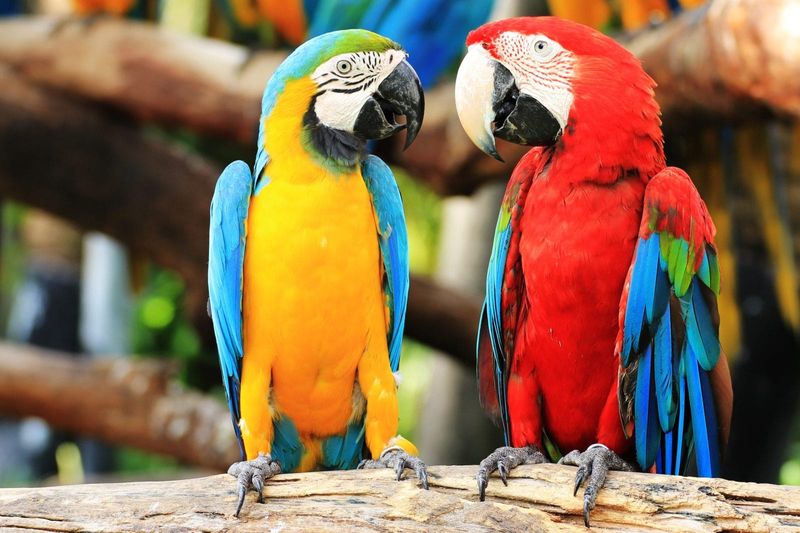
Who doesn’t love a good pat on the back? Birds are no different. ‘Good bird’ is a phrase that comes with reinforcement, often accompanied by a treat.
This positive affirmation boosts their confidence and reinforces good behavior. It’s a gentle reminder that they’re doing well, making it a staple phrase in bird training and interaction. It’s their version of a gold star sticker!
9. No
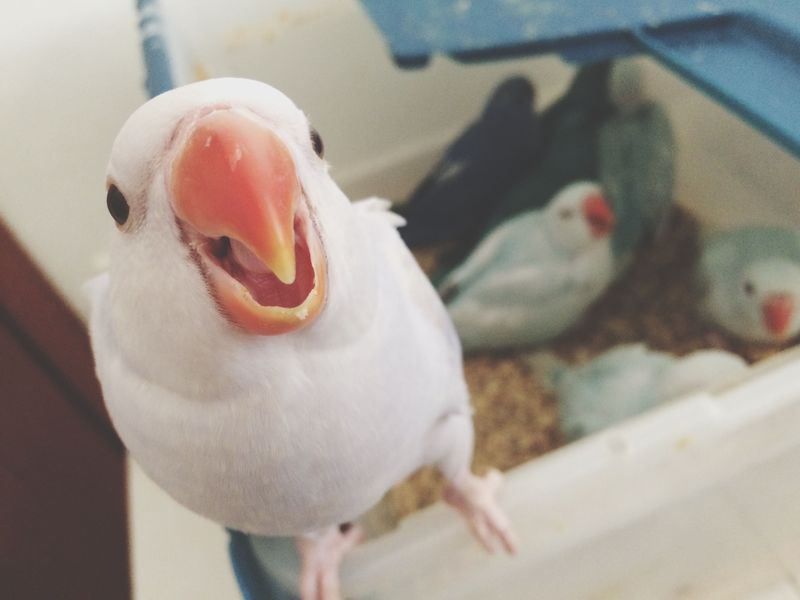
Sometimes birds need boundaries too. ‘No’ is a word they learn to understand limits. It’s not just a command; it’s part of their learning curve.
Whether it’s preventing a mischievous nibble or stopping a squawk, ‘No’ helps in guiding their behavior. Teaching this word involves patience, but it pays off when your bird understands and respects the boundary set by this simple word.
10. Yummy

Food is a universal language, even for birds. ‘Yummy’ is a word they associate with delicious treats and meals. It’s their way of showing appreciation for a tasty snack.
Hearing a bird say ‘Yummy’ after a meal can be quite amusing. It’s like they’re acknowledging the culinary skills of their owner. This word adds a layer of fun interaction during feeding times, making meals not just about eating but also about engaging conversation.
11. Dance
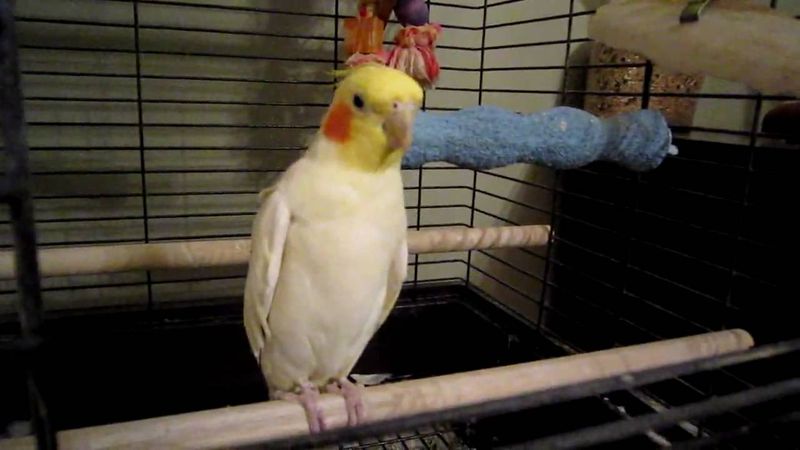
Who knew birds could get their groove on? ‘Dance’ is a command often followed by delightful bobbing and swaying to music. It’s part of their playful repertoire.
Playing a tune and watching a bird respond with a little jig is a joy to behold. Birds like cockatiels often mimic this word, adding their flair to the rhythm. It’s their way of joining in on the fun, turning any room into a dance floor.
12. Hi

Short and sweet, ‘Hi’ is a friendly greeting birds pick up quickly. It’s the avian version of a handshake, creating instant connection.
Budgies and parrots often chirp ‘Hi’ to start interactions. It’s simple but effective, breaking the ice and starting conversations. This little word packs a lot of warmth and friendliness, making it a staple in a bird’s vocabulary.
13. Water
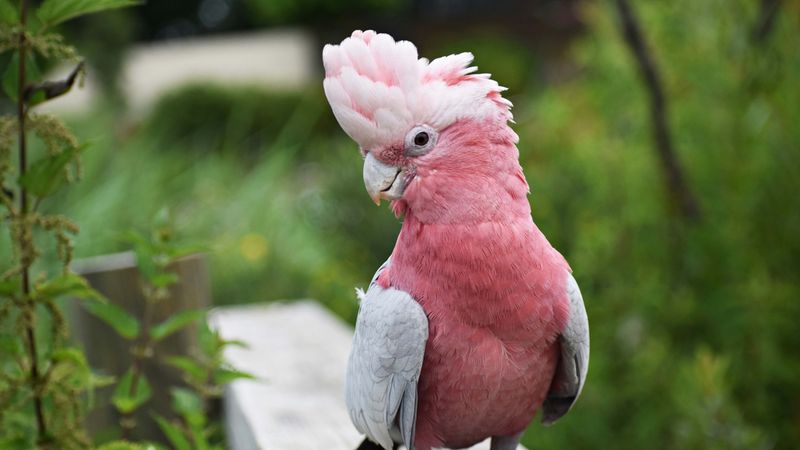
Water is essential, and birds know it too. When they learn the word ‘Water’, it’s more than just vocabulary; it’s a basic need.
This word often comes up around feeding time or during baths. Birds associate it with refreshment and cleanliness. Hearing a parrot ask for water can be both surprising and amusing, showing their understanding of daily necessities.
14. Night-Night

When the lights dim and it’s time to rest, ‘Night-night’ becomes the lullaby. Birds, especially those with a routine, pick this up as a cue for bedtime.
It’s the end of their busy day and the start of a peaceful night. Owners often say ‘Night-night’ to signal rest, and birds seem to follow suit, making it a comforting part of their daily ritual.
15. Thank You
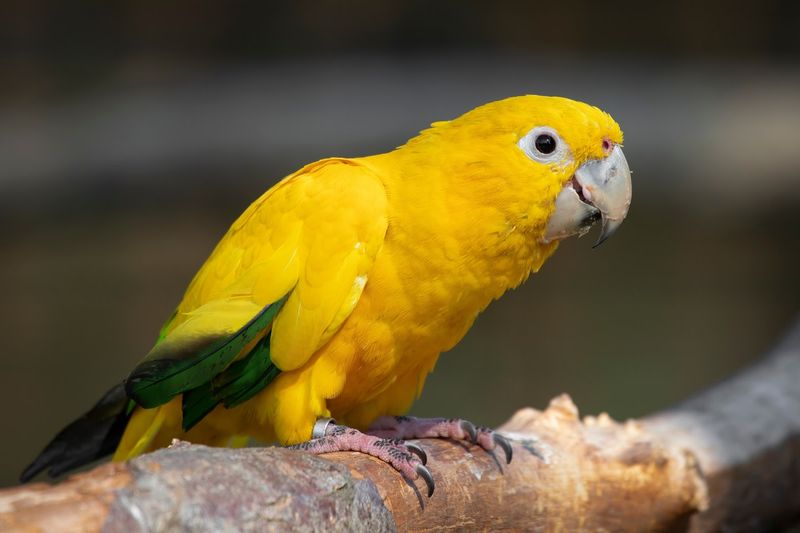
Gratitude isn’t lost on our feathered friends. ‘Thank you’ is a word they learn to acknowledge kindness and treats.
When a bird says ‘Thank you’, it’s a charming display of manners. It’s their way of reciprocating the affection and care they receive. Hearing this from a bird can make any day brighter, turning ordinary moments into delightful exchanges.
16. Tomorrow
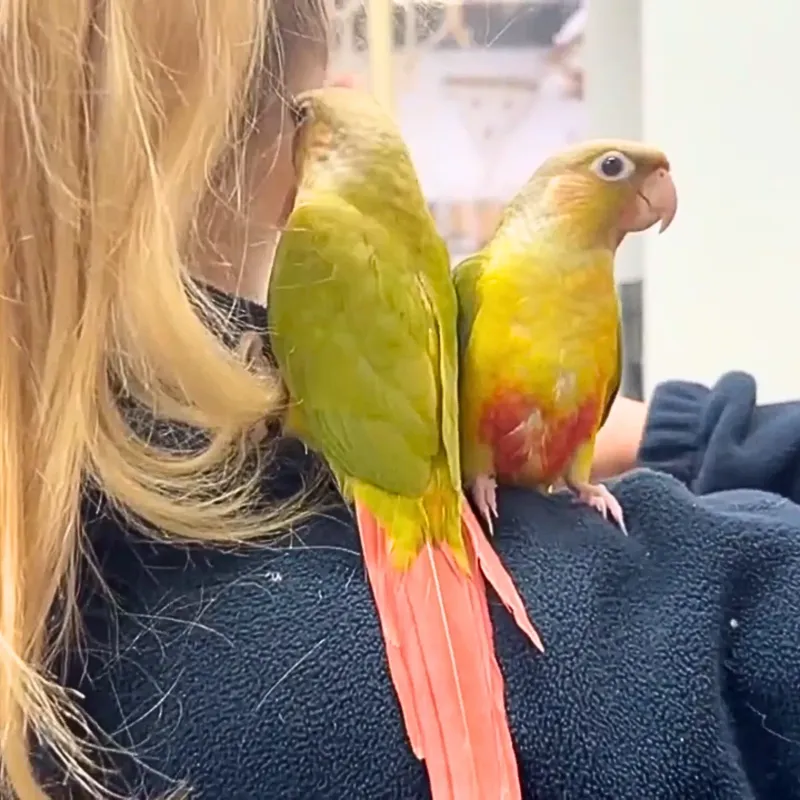
Try telling your bird, “We’ll go outside tomorrow,” and watch it stare back in confusion. Birds don’t have a concept of time in the way humans do. The idea of something happening in the future is completely lost on them.
They live in the now—focused on what’s happening this very second, not what might come next. So while “tomorrow” might comfort a child, your feathered friend just hears another random sound.
17. Sorry
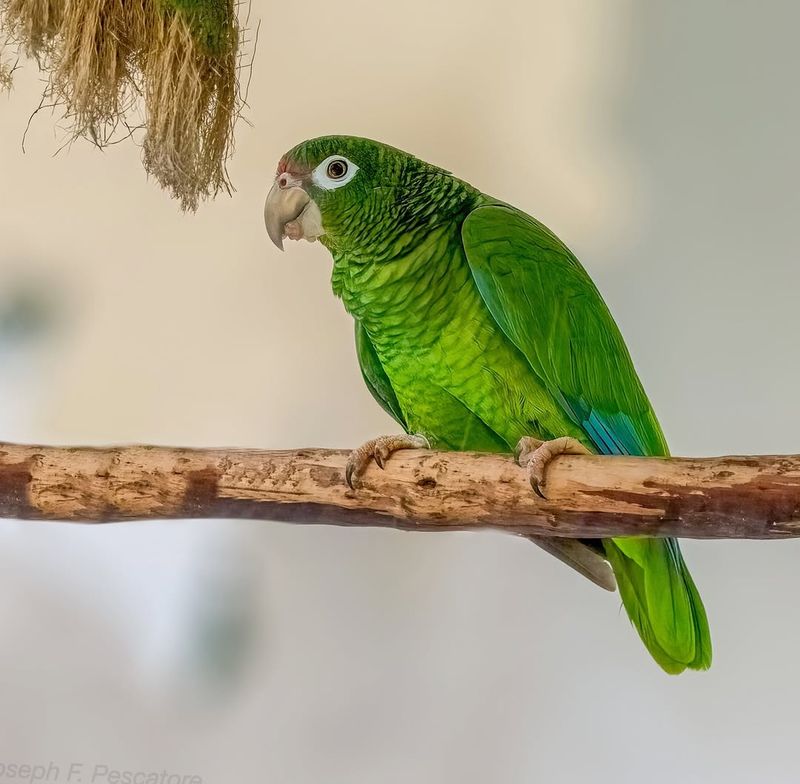
Apologies may feel important to us, but to a bird, “sorry” holds no meaning.
If you’ve accidentally startled or upset your parrot and try to smooth things over with a heartfelt “sorry,” chances are it’s just hearing a new sound without attaching any emotional understanding.
Birds respond more to tone, body language, and consistent actions rather than the abstract human concept of guilt or regret.
18. Maybe

Birds thrive on consistency and clear signals. So, when you say “maybe,” they’re not interpreting it as a potential yes or no; it’s just another unfamiliar sound.
Indecisiveness doesn’t land well in the bird world, where they prefer definitive cues. If you’re thinking “maybe later” about a treat or training session, your bird likely already lost interest.
19. Later
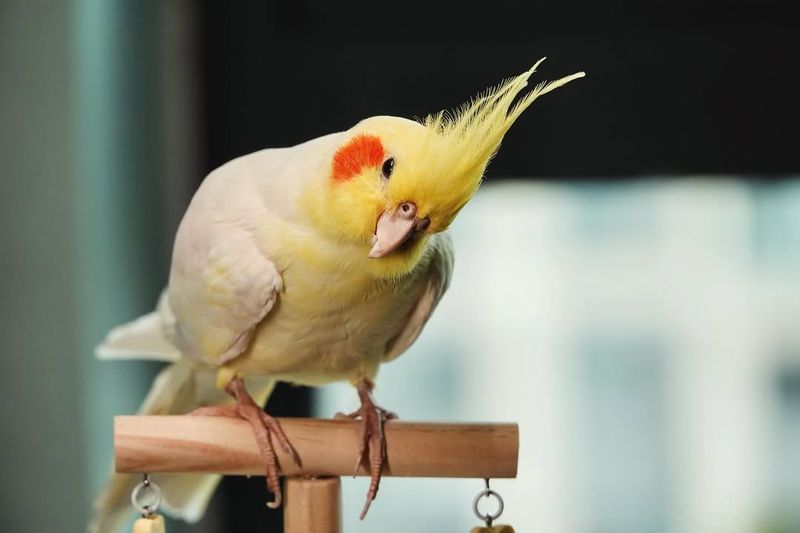
“Later” might as well be a foreign language to your bird. Time-based concepts like “later” or “in a few minutes” are not part of their cognitive skillset.
They recognize routines and patterns, but the idea of something happening at a later time isn’t something they grasp. If it’s not happening now, it might as well not be happening at all in their minds.
20. Because
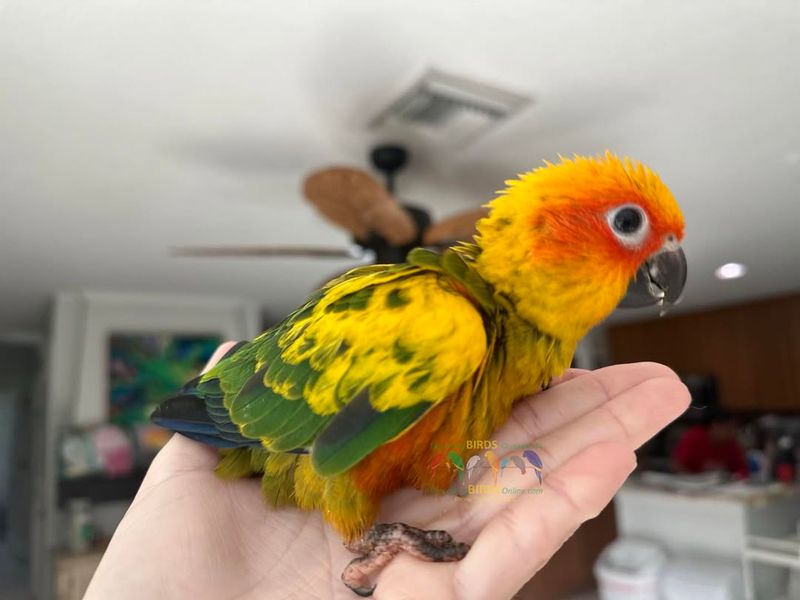
Birds don’t ask “why,” and they definitely don’t care about your reasoning. Words like “because” are a staple of human explanation, but they don’t translate in the bird world.
If you’re explaining your behavior or a decision to your parrot—“because you were being loud”—your bird isn’t connecting the dots. They understand consistent feedback, not justifications.


